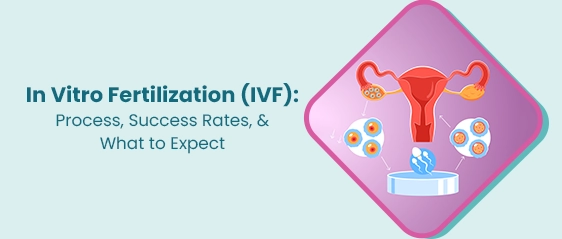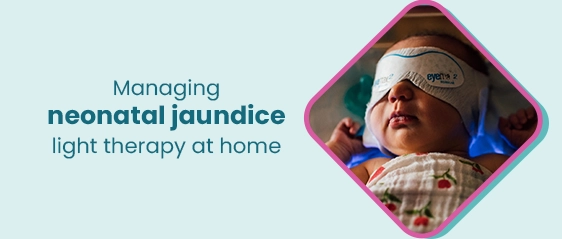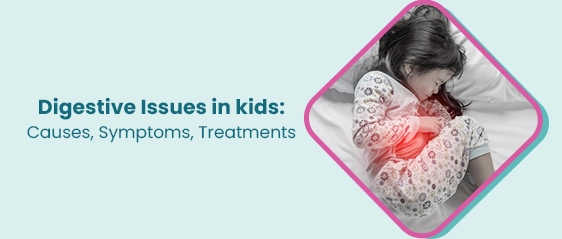
In Vitro Fertilization (IVF): Process, Success Rates, and What to Expect
- 14 Aug 2023
In Vitro Fertilization (IVF)is a remarkable medical advancement that offers hope to infertile couples. This assisted reproductive technology has revolutionized the field of fertility treatments, helping countless individuals achieve their dream of parenthood. This comprehensive blog will explore the IVF process, success rates, and what to expect during this transformative journey.
Understanding In Vitro Fertilization (IVF):
IVF is a fertility treatment that combines eggs and sperm outside the body in a laboratory dish. The resulting embryos are then carefully selected and transferred into the uterus, increasing the chances of a successful pregnancy.
Here's an overview of the IVF process:
Ovulation Stimulation: The first step involves stimulating the ovaries with hormone medications to encourage the production of multiple eggs.
Egg Retrieval: Once the eggs are mature, a minor surgical procedure is performed to retrieve them from the ovaries using a thin needle.
Sperm Collection: On the same day as egg retrieval, a sperm sample is collected from the male partner or a sperm donor.
Fertilization: The retrieved eggs and sperm are combined in a laboratory dish to allow fertilization. In some cases, Intracytoplasmic Sperm Injection (ICSI) may be used, where a single sperm is directly injected into an egg.
Embryo Culture: The fertilized eggs (embryos) are cultured and monitored for several days as they develop.
Embryo Transfer: One or more healthy embryos are selected and carefully transferred into the woman's uterus using a thin catheter.
Luteal Phase Support: Hormone medications support the uterine lining and promote embryo implantation.
Pregnancy Test: A blood test is conducted approximately two weeks after the embryo transfer to determine if pregnancy has occurred.
Success Rates and Factors Influencing IVF:
IVF success rates vary based on age, underlying fertility issues, and the number of embryos transferred. Generally, younger women tend to have higher success rates. Advances in technology and medical techniques have also contributed to improved success rates over the years.
What to Expect During IVF:
Initial Consultation: Your journey begins with a comprehensive consultation with a fertility specialist. Medical history, tests, and evaluations will help determine the best treatment plan.
Medication Regimen: Hormone medications stimulate egg production and regulate the reproductive cycle.
Monitoring: Regular monitoring through ultrasounds and blood tests ensures the optimal timing for egg retrieval.
Egg Retrieval: This is typically a minimally invasive procedure performed under sedation. You may experience mild discomfort afterwards.
Embryo Transfer: The transfer is usually painless and akin to a pap smear. Rest and limited physical activity are recommended afterwards.
Two-Week Wait: The period between embryo transfer and the pregnancy test. Emotions can be heightened during this time, so support from loved ones is crucial.
Potential Multiple Cycles: Success is not guaranteed in the first cycle, and additional processes may be required.
Common Symptoms During IVF:
Mild Discomfort: Some women may experience slight bloating, tenderness, or mild discomfort during ovarian stimulation.
Hormonal Changes: Hormone medications can lead to temporary mood swings, irritability, or emotional fluctuations.
Underlying Causes of Infertility:
Ovulation Issues: Irregular or absent ovulation can hinder conception.
Fallopian Tube Blockages: Blocked tubes may prevent the egg from reaching the sperm for fertilization.
Endometriosis: This condition can affect fertility by impacting the reproductive organs.
Male Infertility: Low sperm count or motility can contribute to infertility.
Advantages:
Effective Treatment for Infertility: IVF offers a successful solution for couples struggling with infertility, providing a chance to conceive and have a biological child.
Higher Success Rates: IVF can have higher success rates than other fertility treatments, especially for couples with specific fertility issues.
Controlled Environment: The laboratory environment allows for precise control over fertilisation and embryo development, increasing the likelihood of a successful pregnancy.
Genetic Testing: IVF allows pre-implantation genetic testing to help identify and avoid genetic disorders or chromosomal abnormalities.
Preservation of Embryos: Excess embryos can be frozen and stored for future use, providing the opportunity for additional pregnancies without undergoing the entire IVF process again.
Family Building Options: IVF enables same-sex couples and individuals to have biological children using donor eggs, sperm, or gestational carriers.
Treatment of Tubal and Uterine Issues: IVF bypasses blocked fallopian tubes or uterine abnormalities, making it suitable for women with such issues.
Disadvantages:
Financial Burden: IVF can be expensive, and multiple cycles may be needed, potentially placing a significant financial strain on couples.
Emotional Stress: The emotional toll of IVF, including the uncertainty of success, hormonal fluctuations, and the rollercoaster of hope and disappointment, can be overwhelming.
Physical Discomfort: Hormone injections during ovarian stimulation may lead to physical discomfort, bloating, and other temporary side effects.
Multiple Pregnancies: IVF increases the chances of having twins, triplets, or more, which can lead to higher health risks for both the mother and babies.
Health Risks: Although rare, there can be risks associated with IVF, such as ovarian hyperstimulation syndrome and ectopic pregnancies.
Ethical and Religious Considerations: IVF may conflict with personal or religious beliefs, causing ethical dilemmas for some individuals or couples.
No Guarantee of Success: IVF does not guarantee pregnancy, and the emotional toll of failed cycles can be mentally challenging for couples.
Frequently Asked Questions
What is IVF?
In Vitro Fertilization (IVF) is a medical procedure where an egg and sperm are combined outside the body in a lab dish. After fertilization, the embryo is placed into the uterus, potentially resulting in pregnancy.
Who is IVF for?
IVF is for couples facing difficulties getting pregnant, such as blocked tubes, low sperm count, or unexplained infertility. Same-sex couples and individuals also use it.
How does IVF work?
IVF involves five main steps: stimulation of egg production, egg retrieval, sperm collection, fertilization in the lab, embryo culture, and embryo transfer into the uterus.
What are the success rates of IVF?
IVF success rates vary, but they're generally higher for younger women. Success can range from 30% to 40% per cycle, increasing with multiple attempts.
Is IVF expensive?
Yes, IVF can be costly, depending on location, clinic, and specific treatments needed.
Are there any side effects?
Due to hormone injections, some women might experience mild discomfort, bloating, or mood swings. These effects are usually temporary.
How long does the IVF process take?
The IVF process can take about four to six weeks, including hormonal stimulation, egg retrieval, embryo culture, and embryo transfer.
Is IVF painful?
Most of the IVF process is not painful. Egg retrieval is performed under anaesthesia so you won't feel pain during the procedure.
Can frozen embryos be used later?
Any extra embryos from a cycle can be frozen and stored for future use.
Does IVF guarantee pregnancy?
IVF doesn't guarantee pregnancy, but it increases the chances for many couples struggling with infertility.
Are there any risks with IVF?
While IVF is generally safe, some hazards include ovarian hyperstimulation syndrome, multiple pregnancies, and ectopic pregnancies.
How many IVF cycles may be needed?
The number of cycles varies. Some couples achieve pregnancy in one process, while others may require multiple attempts.
What should I expect after embryo transfer?
After embryo transfer, you'll rest for a short time and then can resume normal activities. You'll wait about two weeks for a pregnancy test.
Can I do anything to improve IVF success?
Maintaining a healthy lifestyle, managing stress, and following doctor instructions can positively impact IVF success.
How do I choose an IVF clinic?
Research clinics, read reviews, and consult with doctors to find a clinic that aligns with your needs and values.
Remember, these FAQs provide essential information. Consult a healthcare provider or fertility specialist for personalized guidance and detailed answers.




